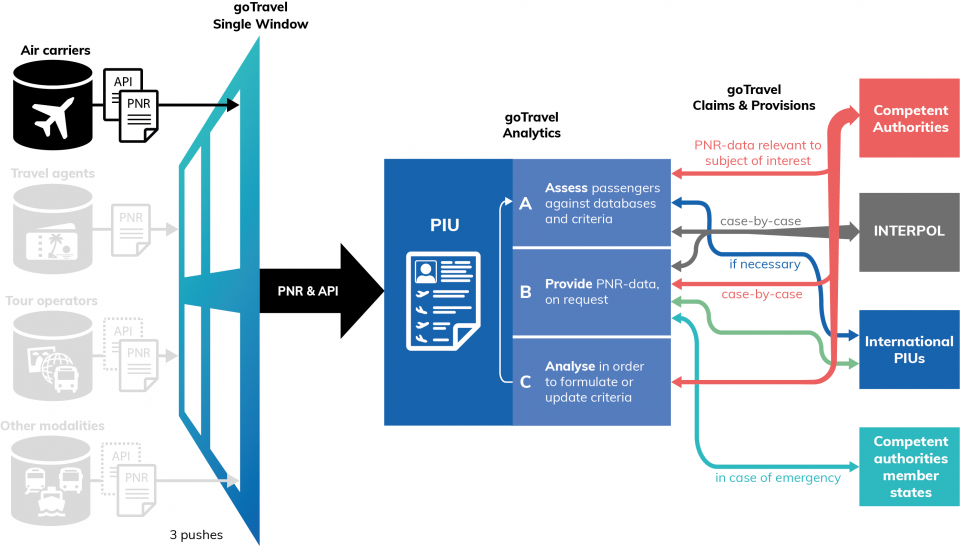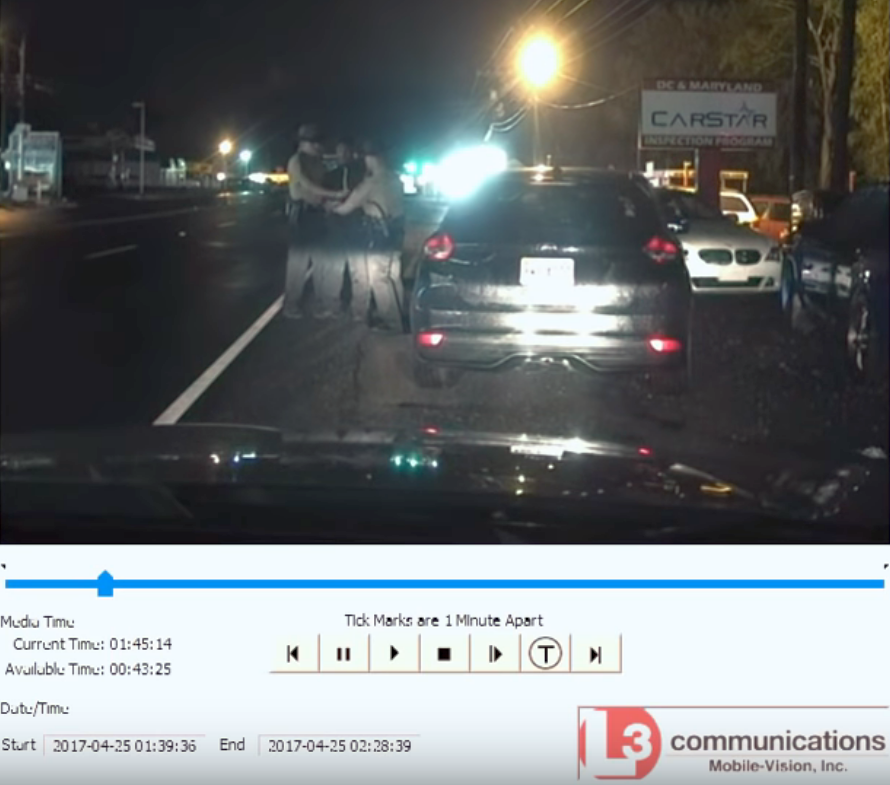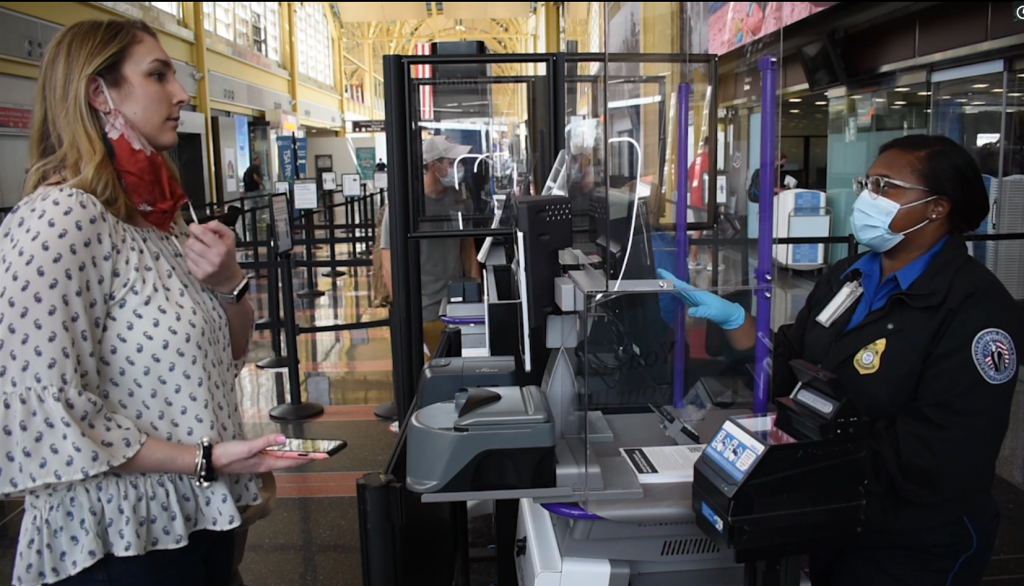The most significant legal challenge since the creation of the Transportation Security Administration to the TSA’s attempt to operate outside the law, and to avoid judicial review of its actions, is coming to a head in the next month in the First Circuit Court of Appeals in Boston. It’s a David v. Goliath legal battle, and the plaintiff wants and needs help.
We’ve talked about Sai’s various challenges to TSA practices before. A little over five years ago, Sai (they go by only one name) filed a pro se challenge to the Constitutionality of 49 USC § 46110, the Federal law which establishes special (and especially limited) procedures and criteria for judicial review of “orders” issued by the TSA.
49 USC § 46110 exempts TSA orders from the usual jurisdiction of Federal District Courts. TSA orders can be reviewed only by the Circuit Courts of Appeal, where there are no trials. Circuit Courts must base their decisions on the “administrative record” as supplied by the TSA, and must grant the truth of any TSA claims supported by “substantial” evidence, regardless of the existence of any (perhaps more persuasive) evidence to the contrary or impeaching the credibility of the TSA and its claims, and regardless of any evidence that the TSA doesn’t chose to include in its “administrative record”. Needless to say, no objections at all will be in the TSA-created “record” with respect to secretly-issued orders.
In a case of first impression, Sai challenged the Constitutionality of this law both on its face and as applied to them. This is the case that will determine, for all practical purposes, whether the TSA is subject to the rule of law, or can continue to make up and enforce its own secret “rules” as it goes along, changing or disregarding them at whim.
We won’t try to recount the history of the case. Suffice it to say that, although motion practice has been extensive, none of the fundamental issues have yet been addressed. The RECAP docket mirror of the docket doesn’t capture most of the filings in the Court of Appeals. There’s a link to a folder of court filings and other related documents here on Sai’s website, but they haven’t been able to keep that index up to date.
A few days ago, after months of silence, the 1st Circuit went from “wait” to “hurry up” and gave Sai just 30 days to brief all their remaining issues and claims, or have them deemed denied. Sai is indigent, proceeding pro se (on their own without a lawyer), and has substantial vision and other physical disabilities that limit the pace of their work.
But that’s not all, and maybe not the worst, of the unfairness in the Court’s latest order.
“Order” isn’t defined in 49 USC § 46110. But in other cases, the TSA has interpreted this definition as broadly as possible, to shield as many of its activities as possible from normal procedures for judicial review. And this is the exclusive procedure for review of such orders.
Sai still doesn’t know what orders the TSA has issued that might apply to them (and that the TSA might try to impose sanctions for unwittingly violating), or what if any basis the TSA claims for these orders. The TSA claims the right to keep all this secret from Sai, while submitting secret lists of secret orders, and secret arguments to justify them, to the Court of Appeals “ex parte and in camera”.
Here’s how the Court of Appeals has now told Sai to respond “hypothetically” to these secret arguments about secret laws:
The matter will proceed to briefing based on the administrative record as just designated. A portion of that administrative record has been accepted for filing ex parte and in camera, and petitioner’s request for clearance to access those materials is denied. Nonetheless, briefing shall proceed. The purpose of a proceeding of this sort is to allow for the challenge of specific agency orders, see 49 U.S.C. § 46110(a), not to facilitate broad discovery of agency policies and practices. With this purpose in mind, the court discerns no reason why petitioner cannot prepare a brief that fully conveys challenges to specific orders despite the unavailability of a portion of the administrative record. Petitioner need only clearly articulate the nature of any orders petitioner reasonably believes may have been disclosed in the sealed portion of the administrative record and then explain why such an order, if it exists, would be amenable to review under § 46110 and why the existence or enforcement of such an order would be illegal or unconstitutional. In other words, to the extent petitioner cannot discern from the publicly filed portion of the administrative record whether a particular order exists, petitioner may present arguments hypothetically assuming the existence of the order and explaining why such an order, if it existed, would be illegal or unconstitutional. Once briefing is complete, the ultimate merits panel will be in a position to review the full administrative record, including the portions of the administrative record filed ex parte and in camera. The ultimate merits panel can assess petitioner’s claims in light of that review.
All this to be completed, on Sai’s part, in the next 30 days.
If you thought arguing hypotheticals was for law school exercises and the bar exam, thnk again. Alice In Wonderland, here we come!
We think that any orders that have been issued in secret, can’t be disclosed to those who are supposed to obey them and against whom they are to be enforced, which are justified (if at all) only by secret arguments and/or secret evidence not subject to independent examination, and that can be challenged only “hypothetically” on the basis of guesses about what the orders are or what secret excuses have been made for them, are unconstitutional on their face, as is this “review” procedure itself.
Sai needs and wants legal help to make this argument to the Court of Appeals. One way or another, this case will set an important precedent. Sai is indigent and significantly disabled, and asked the court to appoint counsel for them. But that’s discretionary in civil cases, and the court declined. If you might be able to provide immediate pro bono legal assistance, please contact Sai ASAP.
 [Flowchart of “goTravel” software package developed by the government of the Netherlands and offered to U.N. members through the Countering Terrorist Travel Programme of the U.N. Office of Counter-Terrorism (UNOCT)]
[Flowchart of “goTravel” software package developed by the government of the Netherlands and offered to U.N. members through the Countering Terrorist Travel Programme of the U.N. Office of Counter-Terrorism (UNOCT)]
